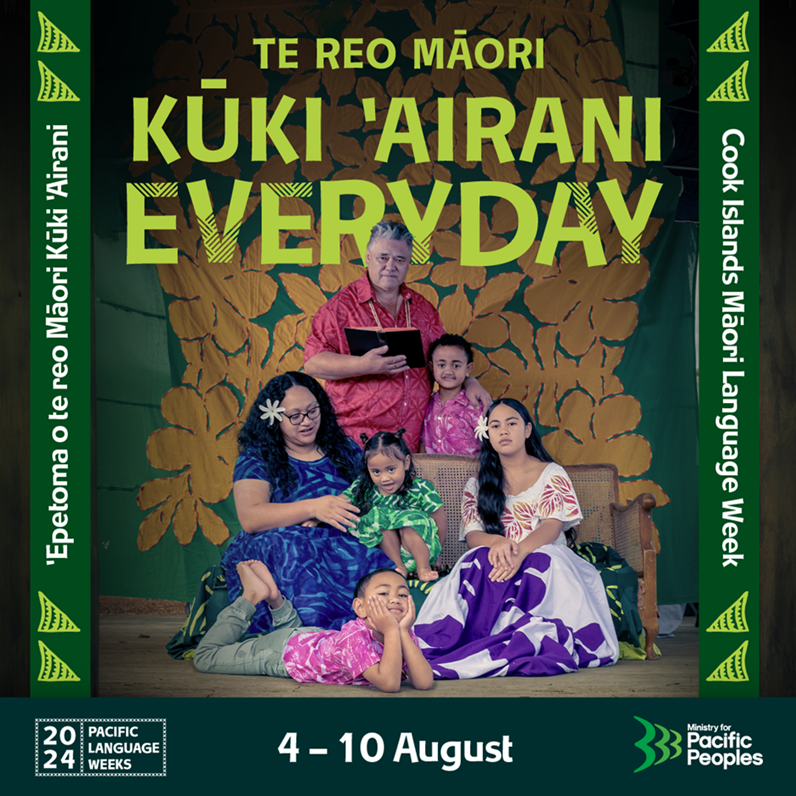This week, 4-10 August, is Cook Islands Māori week. Cook Islands Māori is related to New Zealand Māori but is a separate language. There are many events around the country to celebrate this language and promote its use in New Zealand.
The official opening ceremony was held today in Auckland, and the official closing ceremony will be in Porirua on Saturday. Some of the other events include a film night in Dunedin on Tuesday, a Culture Dancing Night in Christchurch on Wednesday, and a language class to learn numbers in Porirua and a karaoke with Cook Island songs in Hamilton on Thursday. For more specific information, use this link to look at the list of events.
According to the 2018 Census, there were 80,532 people who identified as Cook Islands Māori living in New Zealand. Many people from other Pacific Islands live here as well. New Zealand has one of the largest Pacific Islander populations in the world, making up over 8% of the population. However, use of the languages is declining. For example, Cook Islands Māori is one of the Pacific Languages at risk of disappearing, and only 9% of Cook Islanders living here can speak the language. Because of this, Pacific Language Weeks are organised to help people to maintain their own language and culture.
There are ten other Pacific Language Weeks in New Zealand this year. The language weeks for Rotuman and Samoan were in May and that for Kiribati was in July. Tonga’s language week is later in August, Tuvalu’s is at the end of September, and Fiji’s, Niue’s and Tokelau’s are in October. Two new languages are included this year, Solomon Islands Pidgin and Papua New Guinea Tok Pisin, in November. If you want to see the exact dates, go to the Ministry for Pacific People’s website.
Vocabulary
to celebrate – to show that something is special
to promote – to help something to develop
to identify as – to say that you belong to a category or group

